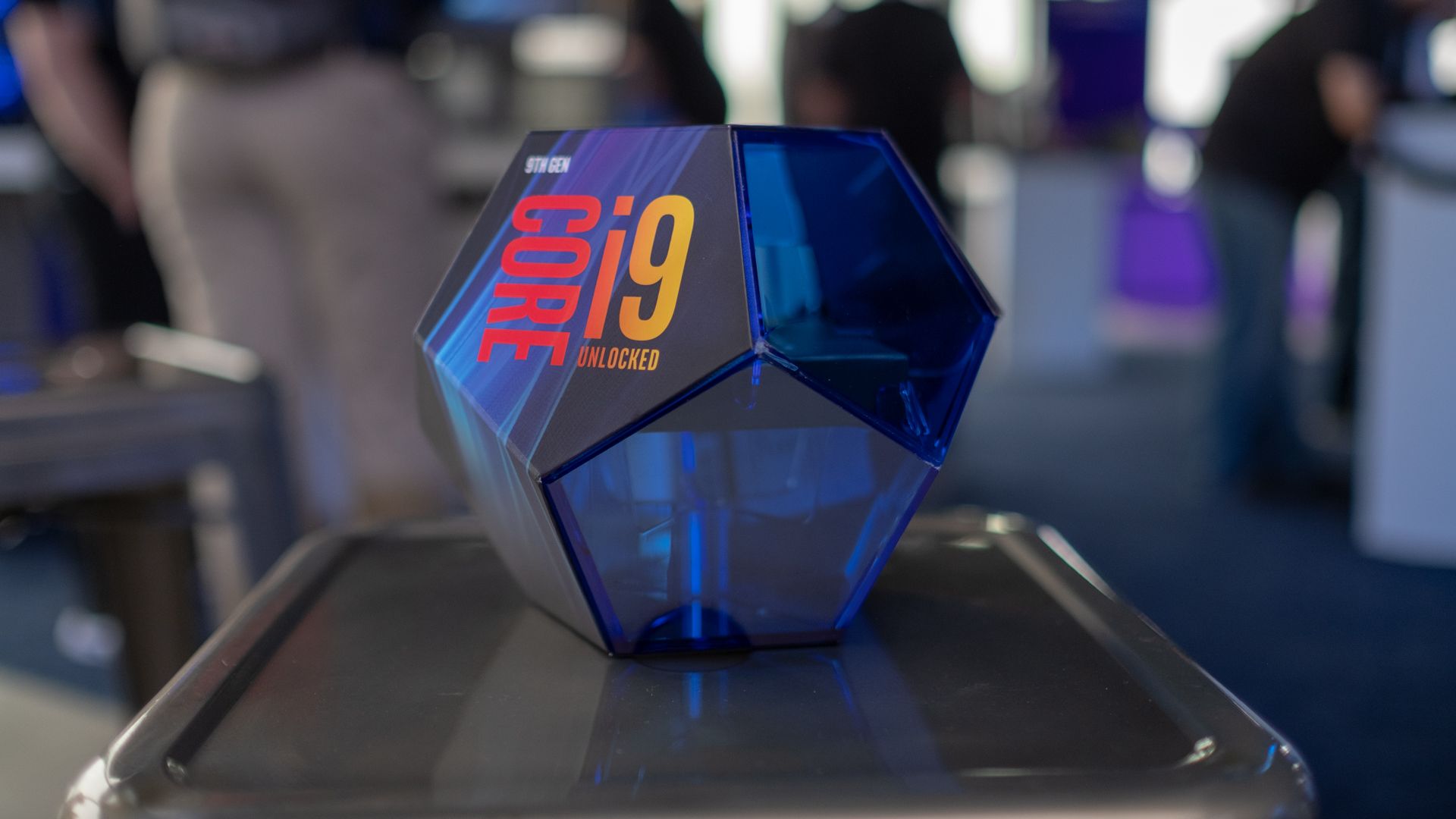Intel announces Core i9-9900KS October launch with a swipe at AMD over boost clocks
5GHz all-core Turbo means 5GHz, Intel promises

Over at IFA 2019, Intel held a press event in which it revealed that the Core i9-9900KS – a processor capable of reaching 5GHz across all of its eight cores, which was first unveiled back at Computex – will go on sale in October.
This is essentially a binned version of the Core i9-9900K, meaning Intel has cherry-picked the best silicon from those parts – the chips capable of actually reaching 5GHz across all cores (normally, the 9900K only reaches 5GHz with single-core Turbo).
- Intel's Project Athena aims for more efficient laptops
- Intel Xe graphics card won’t be a $200 GeForce RTX killer
- AMD vs Intel: which processors are better?
While Intel revealed that the 9900KS will hit shelves next month, sadly it didn’t indicate the price tag, or indeed reveal the TDP (although it will doubtless be higher than the 95W of the base 9900K).
What Intel did say was that the turbo speed of 5GHz means 5GHz, which clearly enough was a dig at AMD, and the recent controversy over Ryzen 3000 processors not hitting their advertised boost speeds (due to a firmware bug, AMD claims, which the company has promised it’s now fixing).
Indeed, to underline that, as spotted by The Guru of 3D, Intel showed one slide entitled ‘questioning from the community’ which highlighted the whole Ryzen 3000 boost episode and issues over ‘clocks, performance consistency, [and] transparency’.
As Tom’s Hardware further reports, Intel showed off a PC using the 9900KS running Hitman 2 and consistently reaching 5GHz across all cores, save for the odd ‘dip’.
Cool customer
The other point to note here, though, is that your cooling solution will need to be good enough to allow the 9900KS to stretch its full Turbo legs – on that Hitman 2 demo PC, Intel was using a Corsair 240mm AIO liquid cooler.
Get daily insight, inspiration and deals in your inbox
Sign up for breaking news, reviews, opinion, top tech deals, and more.
Of course, the other thing to bear in mind is that the 9900KS is still a 14nm Coffee Lake Refresh processor, whereas Ryzen 3rd-gen chips are built on Zen 2 (7nm), AMD’s new architecture which offers an impressive performance boost in and of itself (with a considerable uplift in IPC, or instructions per clock).
Any boost clock niggles aside, we’ve tested the performance of Ryzen 3000 processors extensively, and come up hugely impressed, particularly with their value proposition. And of course the price tag of the 9900KS will be a key factor – which we don’t know yet.
Intel also mentioned Cascade Lake-X at this press briefing, showing a slide which stated that these new chips are coming next month – so also in October – offering up to 2.09x more in terms of relative performance per dollar than Skylake-X. That seems to indicate that these new high-end desktop processors may benefit from lower pricing.
Although a recent leak purporting to be from a Core i9 Cascade Lake-X 10-core processor didn’t leave us too impressed with how it shaped up compared to Ryzen Threadripper rivals, although we have to take any such pre-release leakage with a heavy pinch of salt, naturally.
- We’ve picked out the best laptops of 2019
IFA 2019 is Europe's biggest tech show, and the TechRadar team is in Berlin to bring you all the breaking news and hands-on first impressions of new TVs, laptops, wearables and other products as they're announced.
Darren is a freelancer writing news and features for TechRadar (and occasionally T3) across a broad range of computing topics including CPUs, GPUs, various other hardware, VPNs, antivirus and more. He has written about tech for the best part of three decades, and writes books in his spare time (his debut novel - 'I Know What You Did Last Supper' - was published by Hachette UK in 2013).